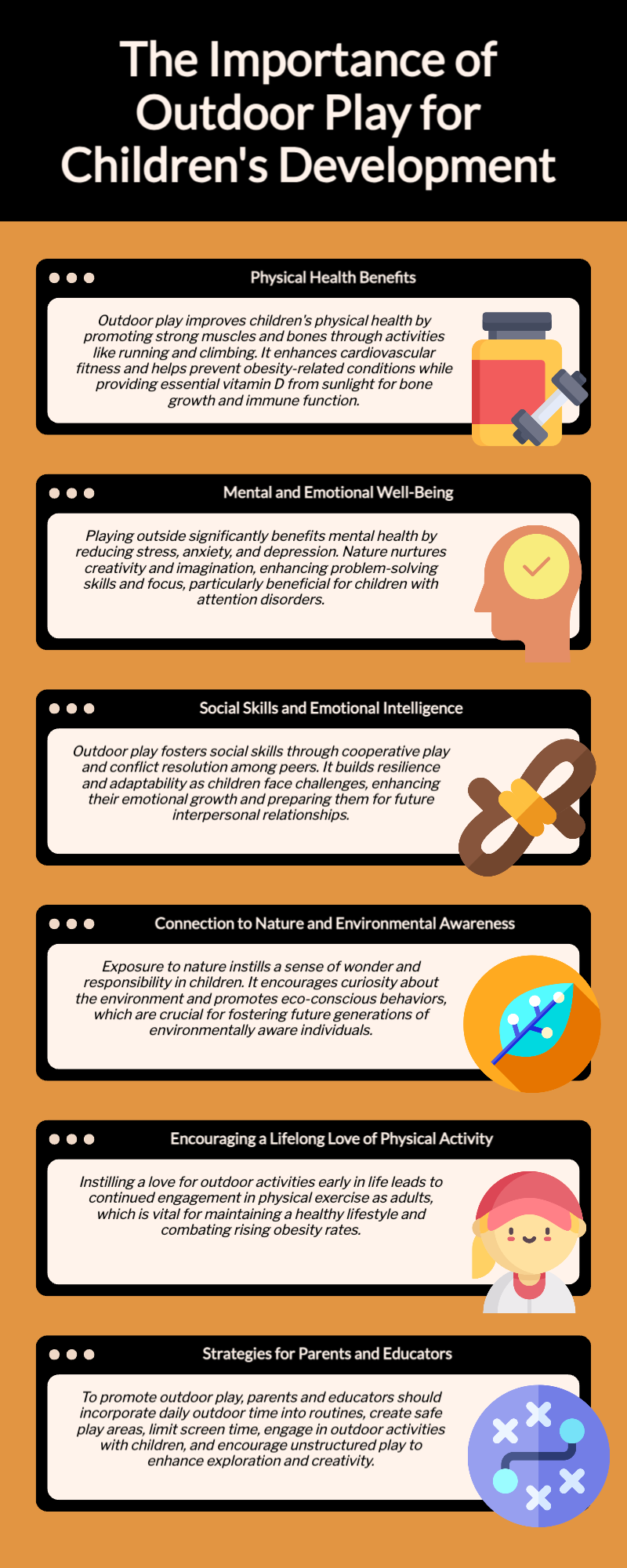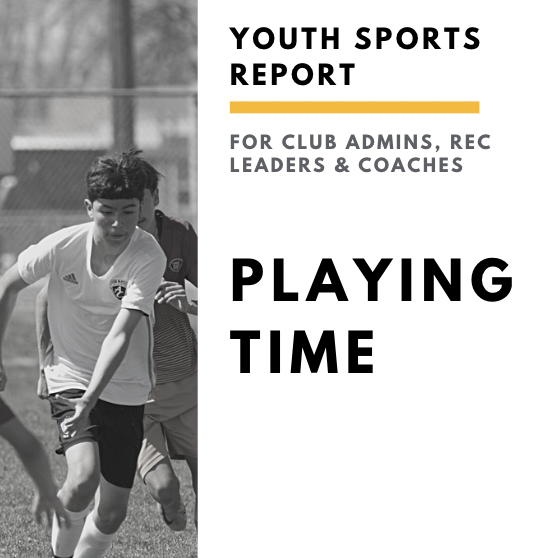Get our exclusive report. Download the iSport360 Club Switching Report Here – For Club Admins, Rec Leaders and Coaches.
Benefits of Playing Outside
Kids are inside so much but there is a huge importance to getting outside. Children are spending more time indoors than ever before, glued to screens, surrounded by artificial light, and missing out on the countless benefits that come with playing outside.
Outdoor play is not just a fun way to pass the time—it’s essential for a child’s physical, mental, and social development. Whether it’s climbing trees, playing tag, or simply exploring nature, outdoor play offers a variety of benefits that every child should experience.
Physical Health Benefits
One of the most immediate and obvious benefits of playing outside is improved physical health. Running, jumping, climbing, and biking all help children develop strong muscles and bones. Outdoor activities encourage cardiovascular health, reducing the risk of obesity and related conditions such as diabetes and high blood pressure.
Sunlight exposure also plays a crucial role in a child’s health. Moderate sunlight provides vitamin D, which is essential for bone growth, immune system function, and mood regulation. Additionally, spending time outside helps improve motor skills, coordination, and balance as kids navigate uneven terrain, swing from monkey bars, or kick a soccer ball.
Mental and Emotional Well-Being
Being outdoors has significant mental and emotional health benefits for children. Nature has been shown to reduce stress, anxiety, and depression in both kids and adults. The fresh air and open spaces provide a calming environment that fosters relaxation and mindfulness.
Outdoor play also stimulates creativity and imagination. Unlike structured indoor activities, nature presents limitless opportunities for children to create their own games, build forts, or embark on imaginary adventures. This type of play encourages problem-solving skills and independent thinking.
Additionally, playing outside helps improve focus and attention span. Studies have shown that children who spend more time in nature exhibit better concentration and perform better in school. This is particularly beneficial for children with attention disorders, as outdoor play provides a natural way to release energy and refocus their minds.
Social Skills and Emotional Intelligence
Outdoor play is an excellent way for children to develop social skills and emotional intelligence. When kids play together outside, they learn valuable lessons in cooperation, communication, and conflict resolution. Whether they are working as a team to build a sandcastle or negotiating turns on a swing, these interactions help them understand how to navigate relationships and work collaboratively.
Additionally, unstructured outdoor play allows children to develop resilience and adaptability. When faced with challenges like climbing a difficult tree or figuring out the rules of a new game, they learn persistence, problem-solving, and the ability to handle setbacks. These skills are essential for emotional growth and future success in life.
Connection to Nature and Environmental Awareness
Spending time outdoors helps children develop a deeper connection to nature and an appreciation for the environment. Kids who regularly play outside are more likely to become environmentally conscious adults who care about conservation and sustainability. By exploring the natural world, they learn about different plants, animals, and ecosystems, fostering a sense of curiosity and responsibility toward protecting the planet.
Furthermore, exposure to nature encourages a sense of wonder and adventure. Whether it’s watching a butterfly emerge from its cocoon or discovering the patterns in a spider’s web, outdoor experiences provide endless opportunities for learning and discovery.
Encouraging a Lifelong Love of Physical Activity
When children develop a love for outdoor play at a young age, they are more likely to continue engaging in physical activity throughout their lives. Outdoor activities such as hiking, biking, swimming, and playing sports can become lifelong hobbies that contribute to overall well-being.
Children who are encouraged to be active outdoors are also less likely to develop sedentary habits as they grow older. With childhood obesity rates on the rise, promoting outdoor play is a simple yet effective way to encourage a healthy lifestyle from an early age.
How Parents and Educators Can Encourage Outdoor Play
Given the many benefits of playing outside, it’s important for parents and educators to prioritize outdoor activities for children. While we can’t fix society just by going outside, here are 5 ways to make change. Just pick one and you will be surprised by the impact you will have.
Here are a few ways to encourage outdoor play:
- Set a Daily Outdoor Time: Make outdoor play a regular part of the daily routine, even if it’s just for 30 minutes.
- Create Safe Play Spaces: Ensure that children have access to safe and engaging outdoor environments, whether it’s a backyard, park, or playground.
- Limit Screen Time: Reducing screen time encourages children to seek entertainment and stimulation outdoors instead.
- Participate in Outdoor Activities: Join children in outdoor games, hikes, or nature walks to set a positive example and make it a family experience.
- Encourage Unstructured Play: Allow kids the freedom to explore and create their own outdoor adventures rather than structuring every activity.
Wrap up!
Playing outside is one of the most beneficial and enriching activities for children. It fosters physical health, mental well-being, social skills, and a connection to nature while also encouraging lifelong habits of activity and exploration. In an era dominated by screens and indoor entertainment, ensuring that kids spend time outdoors is more important than ever.
By making outdoor play a priority, parents and educators can give children the tools they need to grow into happy, healthy, and well-rounded individuals.
iSport360 is the only app that does it all for youth sports. For more information on what we do, click here.
About the author:
Amy Masters is a sports mom, coach, and club administrator. She has been coaching youth sports for more than 10 years. She started Jr Lions Field Hockey, the youth recreation program for the Hunterdon County community growing it from 40 players in year 1 to 150 players by year 3. A few years later, she saw the love and competitiveness grow then started Omega Field Hockey Club serving NJ and PA players. Before coaching, she was a collegiate field hockey player for Lock Haven University. In her spare time (lol), she is head of marketing for iSport360 and the co-editor of the Youth Sports Survival Guide. The Youth Sports Survival Guide is the largest youth sports newsletter in the world.
Learn more or request a demo of our youth sports software that is helping teams improve communication, organization and player development.
March 13, 2025






